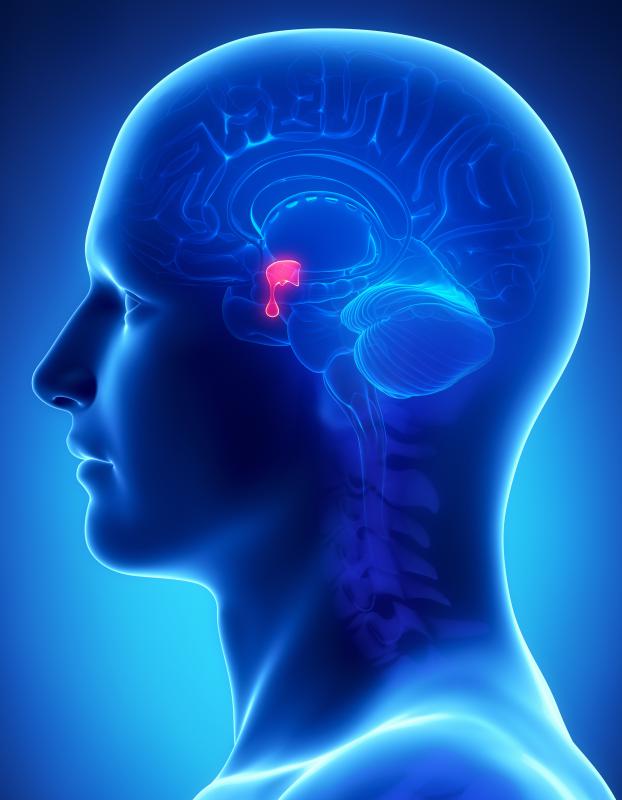At TheHealthBoard, we're committed to delivering accurate, trustworthy information. Our expert-authored content is rigorously fact-checked and sourced from credible authorities. Discover how we uphold the highest standards in providing you with reliable knowledge.
What are the Different Types of Congenital Disease?
A congenital disease is one that is present at birth. Although a person is born with such a disease, it may not appear until later in life. There are numerous types of these that inflict people around the world. Examples are spina bifida, empty sella syndrome, and congenital malaria.
Spina bifida is a condition in which the spinal cord does not completely develop. In many cases, however, it can be detected early on during pregnancy. Some people born with this condition do not suffer any related side effects. Others can experience problems such as fluid in the brain, abnormal eye coordination, and paralysis. Many also develop allergies to latex.

Some theories suggest this condition is caused by genetics. Others link epileptic mothers who have taken valproic acid (VPA) with the increased likelihood of delivering a baby inflicted with spina bifida. There are not, however, any clear and solid conclusions about the causes of this congenital disease.
Empty sella syndrome (ESS) is a congenital disease that affects the pituitary gland. The sella turcica is a structure that is found at the base of the brain and is supposed to protect the pituitary gland. When a person has ESS, the sella turcica will appear empty because the pituitary gland is either too small or flattened.

The pituitary gland is responsible for the production of certain hormones. People suffering from ESS may experience erectile dysfunction, irregular menstruation, and lack of sexual desire. There are several things that are believed to have the potential to cause ESS. These include obesity, high blood pressure, and the accumulation of pressure inside the skull.

Another congenital disease that involves the brain is Aicardi syndrome. This disease involves improper development of the corpus callosum, which is the part of the brain that allows the left and right sides to communicate. It generally only affects females, who usually seem to be born normal but begin suffering spasms within the first few months. Most people with this congenital disease suffer from seizures and some degree of mental retardation.
There are some congenital diseases whose causes are clear. These occur when a mother is infected with a disease that she passes to her child. Two examples are rubella and malaria.

Congenital rubella syndrome (CRS) is a viral condition. It is believed to be passed from mother to child mostly during the first trimester, but may also be transmitted later. When this happens there are high chances of miscarriage, still birth, or birth defects. The possible birth defects can include seizures, congenital glaucoma, and mental retardation.

A rare condition that is most common in Africa is congenital malaria. It can result in low birth weight, feeding problems, and mortality. This condition is usually diagnosed when parasites are found in the baby within the first week of life. It is often treated with intravenous administration of quinine.
AS FEATURED ON:
AS FEATURED ON:


















Discussion Comments
@Vaclav- I guess it could be possible to pass it on since she was the one with the problems. She should probably talk to a geneticist.
I was born with congenital eye disease. I have had countless surgeries and I am legally blind in both eyes. They have saved what they could of my sight. I am thankful for what little I have left.
My sister was born with congenital heart disease. She had to have surgery when she was just a baby. They had to close a hole in her heart and do some other things. None of my other brothers or sisters were born with any heart problems. I wonder if it is possible for my sister to pass on her heart problems to her future children?
Post your comments